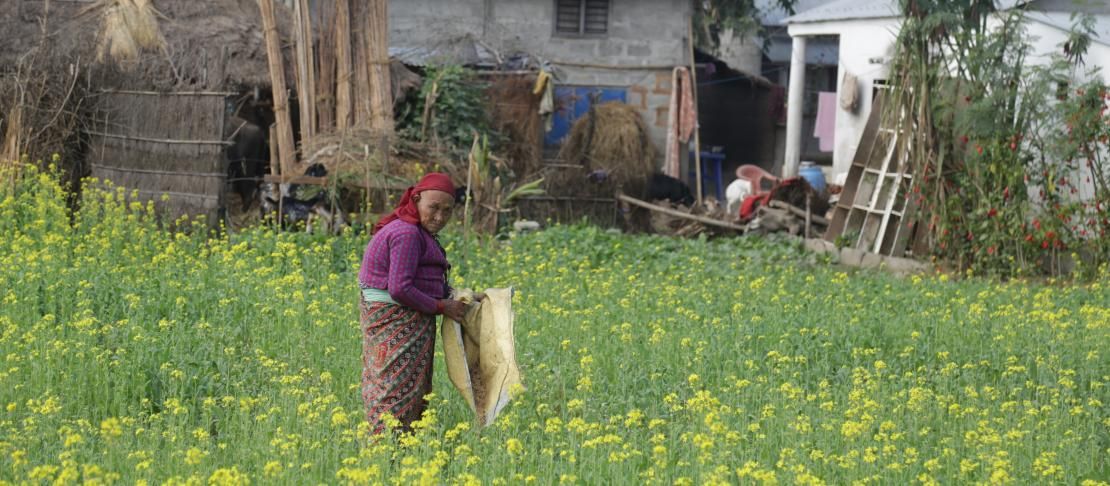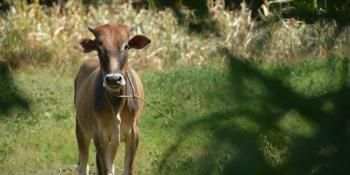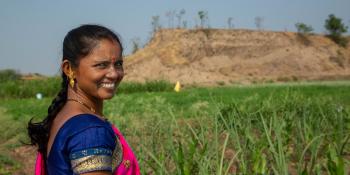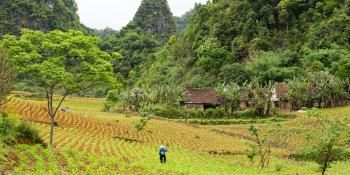A top-down approach for gender empowerment in Nepal

Developing capacity of policymakers to produce and promote gender-informed and inclusive policies in Nepal.
Since ages, the women farmers of Nepal, like their counterparts across the world, have been the personification of grit, determination and resilience. Readers may wonder, why? What is the need to ascribe epithets for the performance of regular roles and tasks? Farming and all that comes with it is internalized into the very psyche of these women farmers and hence, its dutiful execution is not seen as something done extra-ordinarily or outside of traditional expectations. However, the need to gauze deeper becomes essential when considering that women farmers in Nepal form 61% of the agricultural labour force and with rapid climate-induced out-migration of males from the villages there is a further feminization of the agricultural space in the hinterlands. This is adding more pressure to their over-worked lives, as it is common parlance that apart from the agricultural tasks, they are also primarily responsible for looking after their households, its members, being wives, mothers and, in Nepal’s case, the dominant pilots of rural income generation.
Despite forming the backbone of the agricultural sector that contributes one-third to the nation’s GDP, women farmers suffer from limited land ownership, access to technology, information, inputs and decision-making power among other factors, making them much more vulnerable to negative shocks such as climate risks. Their low adaptive capacity disempowers them in the sector to cope with climate change, impacting overall agricultural production and productivity.
A need to connect and integrate
The government of Nepal has devised several strategies and policies for the growth of the agricultural sector addressing some of the gender-based requirements as well. Even policies related to climate change including Climate Change Policy (2067), National Adaptation Program of Action (NAPA) and National Adaptation Plan (NAP) have considered gender issues and needs. However, gender issues are assessed independently within these policies and highlight a lack of interlinkage between gender, agriculture and climate change.
Identifying the need for gender integration across agriculture and climate change policies, the CGIAR Research Program on Climate Change, Agriculture and Food Security (CCAFS), along with Local Initiatives for Biodiversity, Research and Development (LI-BIRD), is implementing a project titled, ‘Enhancing awareness and capacity of women leaders and policy-makers on gender, agriculture and climate change’ in Nepal. The project aims to raise awareness of women members of parliament (MPs), senior officials of the bureaucracy (with a focus on women officials) and women members of the President’s office on climate change, agriculture, right to food, and gender equality issues.
The objectives of the project are to develop knowledge products for raising awareness on gender, agriculture and climate change for different beneficiary groups, stakeholders, and practitioners; raise awareness of women parliamentarians, senior women bureaucrats, other relevant government officials and farmers on the impact of climate change on women farmers; provide evidence-based inputs to relevant policies on gender, agriculture and climate change to make them grounded and conducive to women farmers and their families.
Envisioned project outputs
Through these objectives, the project aims to arrive at:
- A framework for integrating gender, climate change and agriculture in Nepal’s existing policies
- Capacity building of parliamentarians in the form of interaction workshops of stakeholders, travelling seminars and field exposure visits in Climate-Smart Agriculture pilot sites;
- A wide range of knowledge products such as factsheets, leaflets, summary of relevant polices, summary of NAP process, Right to Food bill, climate change vulnerability status, and available Local Adaptation Plan of Action (LAPA) documents targeting different beneficiary groups, stakeholders, and practitioners; and
- Evidence based feedback to parliamentarians on gender, agriculture and climate change related policies conducive to women and their families.
It is envisioned through this project that strategies for gender inclusiveness in Nepali agriculture become a point of normativity rather than a matter of deliberation. That, who are considered the backbone of the sector are indeed accorded the place where they are comfortable, resilient and empowered.
Nitya Chanana is a Consultant Researcher-Gender and Social Inclusion at CCAFS South Asia.
Shehnab Sahin is the Communications Specialist at CCAFS South Asia.



